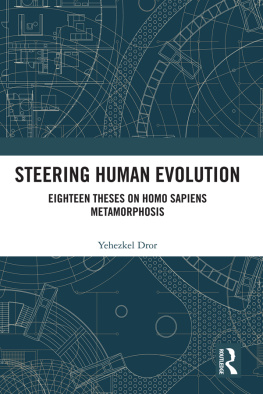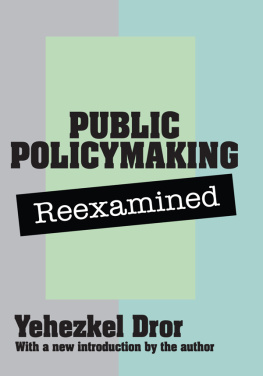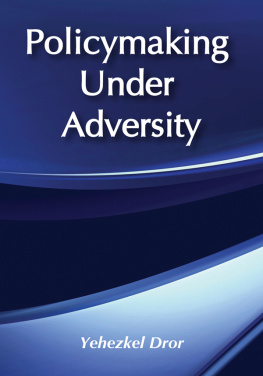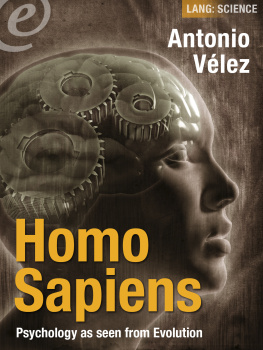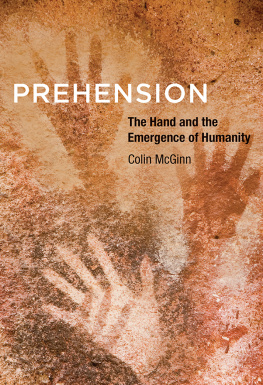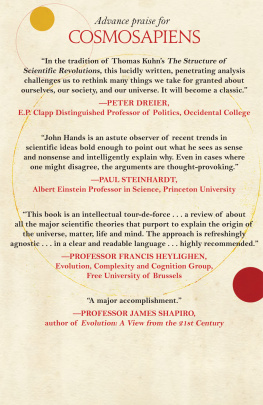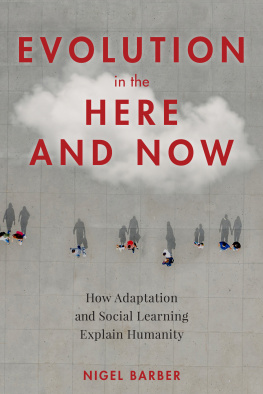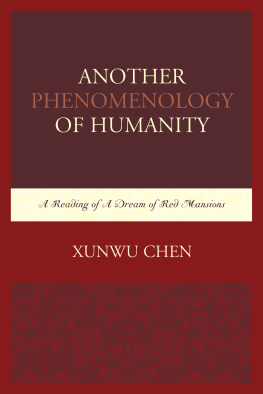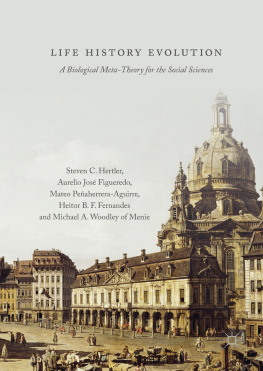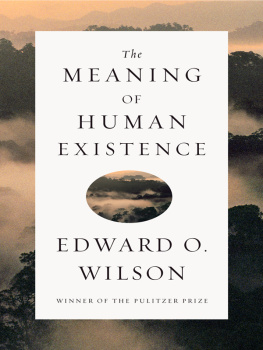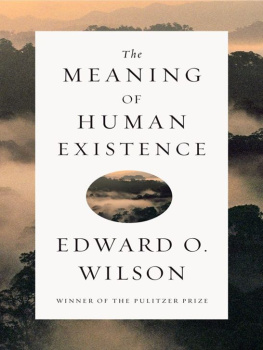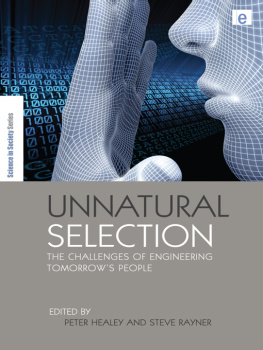STEERING HUMAN EVOLUTION
Humanity must steer its evolution.
As human knowledge moves a step ahead of Darwins theories, this book presents the emergence of human-made meta-evolution shaping our alternative futures. This novel process poses fateful challenges to humanity, which require regulation of emerging science and technology which may endanger the future of our species. However, to do so successfully, a novel humanity-craft has to be developed; main ideologies and institutions need redesign; national sovereignty has to be limited; a decisive global regime becomes essential; some revaluation of widely accepted norms becomes essential; and a novel type of political leader, based on merit in addition to public support, is urgently needed.
Taking into account the strength of nationalism and vested interests, it may well be that only catastrophes will teach humanity to metamorphose into a novel epoch without too high transition costs. But initial steps, such as United Nation reforms, are urgent in order to contain calamities and may soon become feasible.
Being both interdisciplinary and based on personal experience of the author, this book adds up to a novel paradigm on steering human evolution. It will be of great interest to scholars and researchers of modern history, evolution sciences, future studies, political science, philosophy of action, and science and technology. It will also be of wide appeal to the general reader anxious about the future of life on Earth. Comments on the Corona pandemic add to the books concrete significance.
Yehezkel Dror, a contemplative policy scientist, was born in 1928 and has lived in Israel since 1938. He holds a BA and Magister Juris from Hebrew University, and an LLM and SJD from Harvard University. He is emeritus professor of political science and public administration at the Hebrew University of Jerusalem. He won the Israel Prize in 2005 and has been an adviser to Israeli prime ministers. The founding president of Jewish People Policy Institute, he also serves as an international consultant on policy planning and has been a mentor to senior political leaders.
He is the author of the books Public Policymaking Reexamined, Capacities to Govern, Crazy States, Israeli Statecraft and For Rulers. He is also Honorary Member, Club of Rome; Emeritus Fellow, World Academy of Art and Science; and Member, European Academy of Sciences and Arts.
First published 2020
by Routledge
2 Park Square, Milton Park, Abingdon, Oxon OX14 4RN
and by Routledge
52 Vanderbilt Avenue, New York, NY 10017
Routledge is an imprint of the Taylor & Francis Group, an informa business
2020 Yehezkel Dror
The right of Yehezkel Dror to be identified as author of this work has been asserted by him in accordance with sections 77 and 78 of the Copyright, Designs and Patents Act 1988.
All rights reserved. No part of this book may be reprinted or reproduced or utilised in any form or by any electronic, mechanical, or other means, now known or hereafter invented, including photocopying and recording, or in any information storage or retrieval system, without permission in writing from the publishers.
Trademark notice: Product or corporate names may be trademarks or registered trademarks, and are used only for identification and explanation without intent to infringe.
British Library Cataloguing-in-Publication Data
A catalogue record for this book is available from the British Library
Library of Congress Cataloging-in-Publication Data
A catalog record for this book has been requested
ISBN: 978-0-367-40940-1 (hbk)
ISBN: 978-0-367-80999-7 (ebk)
Typeset in Sabon
by Apex CoVantage, LLC
TO THE MEMORY OF PROFESSOR RACHEL ELBOIM-DROR LIFE PARTNER, MOTHER, GRAND-MOTHER, SCHOLAR, NOVELIST AND POETESS
I dont write for an audience, I write for users, not readers.
Michel Foucault (quoted in Gutting, 2005, Kindle location 523524)
Novel challenges
This book deals with novel challenges which are critical for the future of the human species, but are inherently intractable and therefore require heretical responses. Three preliminary examples will clarify the quandary: The first is the requirement to make choices impacting on an unknowable future, which therefore involve perilous, but unavoidable, fuzzy gambling for very high stakes. The second is the necessity to act on behalf of future generations without any plausible right to do so. The third consists of global measures overriding state sovereignty, which are essential, but opposed by the main powers and not welcome by most of humanity.
The underlying reason for the emergence of such challenges, which require Promethean responses, is a macro-historic metamorphosis into which humanity is cascading, without adequate understanding and completely unprepared. Margaret Mead sensed this when she wrote in her autobiography:
The atomic bomb exploded over Hiroshima in the summer of 1945. At that point I tore up every page of a book I had nearly finished. Every sentence was out-of-date. We had entered a new age.
(Mead, 1945)
She was more right than she recognized. Not only nuclear weapons, but a large range of innovations are pushing the human species into a self-made epoch of neogenesis with features largely shrouded in ignorance. Therefore, main ideas, values, institutions and habits of humankind, as evolving since deep history, have to be reassessed and in part deliberately reengineered, so as to meet the survival and thriving requirements of humanity as a multi-generational population and a civilizational species.
To contemplate how to proceed we need in our minds open-ended models of alternative futures of humanity in its environments and their drivers, fitting templates imprinted in our mind (Seligman et al., 2016; Vertzberger, 1993), but deliberately improved by our meta-minds. For trying to bend the future of our species for the better, advanced versions of such models have to be shared and utilized by interacting actors on the level of ultrasociety (Turchin, 2016).
Mission
The mission of this book is to develop and present key parts of such a model, however rudimentary and provisional. It aims at future-bending actors, individual and collective, as well as the becoming global demos as a whole, trying to help them to respond adequately to the increasingly fateful challenges facing the human species.
Development of such an explicit model is all the more necessary as it is sorely missing in contemporary scholarly and policy endeavor. An increasing number of publications deal with parts of such a model, heuristically and in part mathematically, as in Earth and climate sciences. Important efforts are made to develop relevant approaches (e.g. Johnson et al., 2017). Nevertheless, glaringly missing are holistic, heuristic and action-oriented investigations of alternative future human evolutionary dynamics and their drivers, which meet minimum requirements of plausibility.
Reasons for this rather dismal state of affairs include over-specialization up to tunnel thinking, lack of understanding of what is happening before our eyes, difficulties of mental time-traveling into the future, mental barriers and social pressures to repress fundamental uncertainty and the consequent fuzzy gambling nature of critical choices, and only partly recognized and usually not admitted inherent limits of the human mind (Varela et al., 2017; Seitz, 2019).
This book is a somewhat daring effort to cope with such problems, and, at least, stimulate and also provoke others to do so better.

